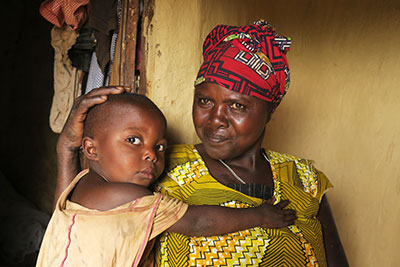Session 3/21
Page 5/6: Topic C: The fear of seperationTopic C: The fear of seperation – “She loved us from the first day – or did she?”
The child or young person may express its separation anxiety through different behaviour patterns.
Some children will loose contact with their own needs and beliefs, and will be ready to do anything to adjust to the new caregivers, in order to avoid further rejections. To some, it might seem like some children love their foster parents and are adjusting perfectly from day one. It will seem that these children are able to reach out to anyone they meet in an utmost charming way. However, forming true emotional connections takes time. Therefore, you should see this type of behaviour as the child’s way of avoiding further rejection. This over-adjustment behaviour is driven by a fear of separation. After a few months the child will begin to feel secure, and you will be able to witness some of the problems and conflicts that the child carries. The fact that a child shows this type of behaviour is really a sign that the child is starting to feel secure and therefore trusts you not to leave it even if it expresses its problems to you.

Other children will react opposite to this. Instead of showing excessive adjustment ability, they will, out of fear of rejection, rather entirely avoid forming relationships with their new caregivers. These children have often experienced a great deal of abandonment early in life and have therefore learned that, in order not to be disappointed and rejected, it is better not to depend on an adult. At first, it may seem that the child is very independent and does not need your help. However, remember that this is just a survival mechanism and that all children need continuous care, support and love. In time, when the child feels more secure with you and learn that you will not abandon him/her, it will start to trust you and form real emotional attachments with you. It can take a long time to rebuild a child’s ability to trust its fellow human beings but every single positive experience with the child’s new caregiver is a step in the right direction.
If the child has been exposed to early neglect, and therefore, has not been able to form deep attachments with adults, they will often, uncritically and with no regard to boundaries, attach themselves to every person they meet without forming any deep relationships. It can take years to form an attachment with this kind of child. Another reaction to early lack of care can be seen in children who are extremely reserved, who avoid any form of contact, and who does not show any need to form attachments (e.g. by not responding to separation and loss in situations where a reaction would be natural for a child or a young person).
- What were the child´s first reactions when meeting you?
- Can you help the child to adjust by containing and being patient?
- Does the child show much fear of separation from you? How can you manage this in a calm and kind way when it happens?
- Is the child trying to be charming and live up to your expectations – how can you respond to this?
